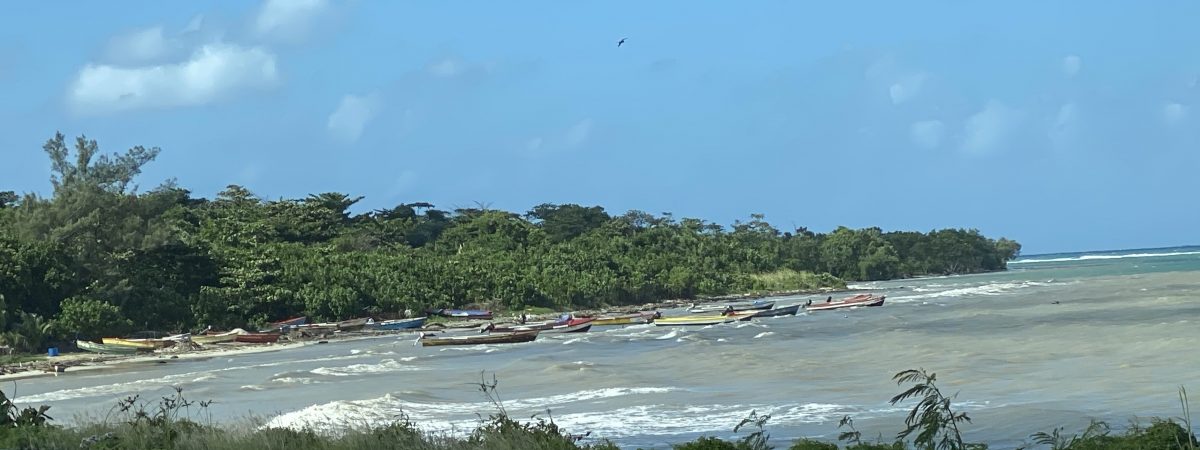Let me declare that I started my working life as a transport economist, working alongside the National Bus Company in the UK.
I need to get a certain frustration out of my system. I really do not like what the Jamaican Urban Transport Corporation (JUTC) is doing. This public bus company is effectively holding other motorists to ransom. Let me explain. Last November, JUTC was given permission, for a three-month trial, to have a lane of Mandela Highway (a major four-lane thoroughfare running east-west, to the west of Kingston) dedicated to its buses. Other bus operators were not allowed to use this ‘bus lane’ (more correctly called ‘JUTC lane’, therefore). At the time, many motorists were angry and upset. However, little regard was given to their protests, and the ‘trial period’ was extended for three more months, from February through April 2014. Authorization was given by the Ministry of Transport Works and Housing.
The management of JUTC was ecstatic about this trial. Its Managing Director, Colin Campbell stated the following:
- “The JUTC is pleased to report that the temporary JUTC Bus Lane has been a success. It is of note that Spanish Town has now been ranked the highest revenue earner of the three depots.”
- With the introduction of the bus lane on November 1, 2013, the JUTC transported 718,610 passengers compared with 686, 483 in October 2013.
- The passenger load dropped in December because of the school break but it did not affect revenue intake which showed an improvement over November.
- JUTC projected that 747,000 passengers will be moved in January 2014.
- Revenue earned during the three-month trial period of the Mandela Highway Bus Lane showed an increase of J$1 million in November over October, $1 million in December over November and is projected to show an increase also of approximately $1 million in January 2014 over the previous month.
- The ease of traffic congestion created by the bus lane also saw the JUTC saving on fuel consumption by five percent.
These are all wonderful developments for JUTC, which like many public bus companies worldwide, was struggling to get into and stay in the black.

To accommodate the bus lane, the westbound dual carriageway has been converted to two-way traffic from Caymanas Bay to Plantation Heights between 6:00 am and 8:00 am on weekdays.
Kingston already has some bus lanes, notably on the same east-west corridor, closer to the city along Washington Boulevard.
JUTC gets support from the public purse. Now, it is getting support in the form of free space for its operations.

However, its self-congratulatory back-slapping misses some very salient facts. All of its success from the trial has come at the expense of other road users.
Those in cars or minibuses, heading east into Kingston are still in congested traffic. Logically, private minibuses could have access to the special lanes, and ease the journey of many passengers. Few would argue that the car drivers be given the same privileges–although in many places, if private cars are carrying 2 or more passengers, they get some privileged access to roads.
Those heading west out of Kingston–normally an easy journey against the prevailing flow of traffic–are now in congestion during much of the ‘two -hour’ window of the bus lane.
JUTC’s savings in petrol consumption is being offset by additional consumption by other motorists, especially those heading west.
I would have been very impressed if JUTC’s MD had added these points into his definition of ‘success’. Better still, a full cost-benefit analysis of the trial should have been made and presented to the public.
But, the scheme has some other pernicious aspects. I don’t usually drive on the stretch of road, but have had to over recent weeks, and usually between 6.30-8am. Here’s what I have noticed.

The lane restrictions do not end at 8am. In fact, they tend to stay in place until around 8.15. Not much you may say. However, that extra period offers JUTC some more free time and space. It also extends the congestion for those headed west. The lane restriction is extended to allow for the dismantling of the restriction–removing cones, picking up personnel and police who are there to ensure it works smoothly.
Why does this scheme operate this way? Apparently, because government agencies can exert such power to do what they want, despite protests and inconvenience to other citizens.
Whether the rest of the motorists are national tax payers, or payers of road licence fees, or fare-paying passengers, or payers of taxi operator licences, they have some rights and say in the matter. They should not be disregarded.
Clearly, JUTC does not want to help its competition. However, the Ministry should be looking at the larger picture and the total ‘costs’ and ‘benefits’. The Minister is a very good economist, and he should understand these things.
Let me be an optimist and think that the Minister and the MD of JUTC will at least reflect on the other side of the ‘balance sheet’ of this trial, and at least stop crowing about its success if only looking at benefits to JUTC. Let me also hope that if the trial were to extended further or even put into permanent operation, consideration be given to letting private bus operators use the lanes (if carrying passengers).
Let me not be cynical or dismissive and think that the public agencies will not give a hoot. However, if they take that approach, perhaps other road users will have to hoot, too. Blaring horns could be a very stirring rallying sound for those who are not being represented by those whom they chose as representatives and have forgotten what public service really means.













